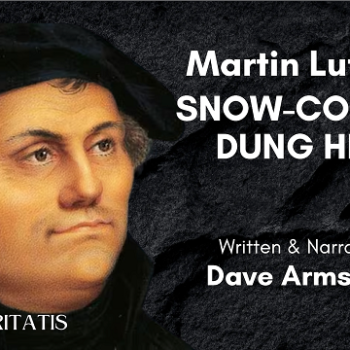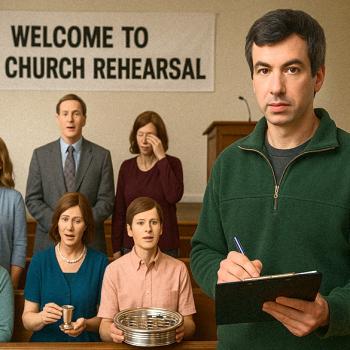Editors' Note: This article is part of a Public Square conversation on Civil Religion. Read other perspectives here.
The fact that America has a civil religion more or less answers the question, "Does America need a civil religion?" Apparently a lot of Americans, especially American officials, think we do. And it doesn't appear to be on its last legs—thus the regular references to God in speeches, no serious challenges to chaplaincies in the military and Congress, local and national prayer breakfasts, and so on.
Robert Bellah said that what counts as civil religion today is an "empty and broken shell," and that seems to be the case. But from an evangelical perspective, all forms of civil religion are empty and broken. Then again, even an empty and broken cup reminds us that there are cups unbroken and full of liquids both delicious and nourishing. So I'd argue that despite its serious defects, on the whole civil religion is a good thing.
First, it gives us a place as a nation to recall from where we've come, that our nation and its form of government is ultimately a divine gift. This can open up rivers of gratefulness during Thanksgiving and Independence Day, among other national occasions. Surely it is better to live in the land of the grateful than in a society of the indifferent or bitter.
Second, civil religion reminds us that there is a power greater than the nation. It is no mere coincidence that history's greatest atrocities—the millions murdered in Stalin's U.S.S.R. or Hitler's Germany—have been committed by governments that believed they answered only to posterity, if that.
Third, civil religion gives civil servants and community leaders a divine mandate to reward virtue and punish vice. We jail murderers and thieves not merely because we want to maintain social order, but because of our sense of divine justice.
All that being said, anyone with a smattering of religious experience recognizes how empty and broken such a religion is. It is a mere sketch of vital religion. It fails to grasp the great paradox of life.
It cannot, for example, offer substantial hope in the face of suffering and tragedy, but only cheery pep talks that if we have courage, we can see this through. It cannot ask searching questions, especially of itself. It does not usually notice the looming question marks that hover over its pretensions and plans and power, questions that aim to puncture the hubris that so inflates places of power. And finally, civil religion relies on threats of fines and prison, along with divine displeasure, to motivate its citizens to good behavior.
Civil religion is good as far as it goes—it does encourage a modicum of order—but it does not go far enough to bring health to a nation. Compare it to any great religion, and it tastes like stale water. This is one reason we evangelicals invite our fellow citizens into a relationship with God that cannot be broken and is anything but empty.
The riches of Christian faith are many, but when it comes to our common life together, we believe this: Ultimately a healthy society does not hinge on our ability to do good, or muster courage, or pursue just policies. We evangelicals strive for such common goods, of course! But we are driven not by fear or force or superstition, but by the reality of a great paradox.
It's been our experience that only by living in the reality—and a church community so grounded—of divine forgiveness are we capable of a sustained life of joy, love, and good works for family, friends, neighbors, and nation. Only when we realize we are free to fail do we know the freedom to really try. Only when the future does not depend on our abilities, do we have confidence in the future. However you judge the logic of these sentences, we can only say that this has been the paradoxical experience that knowing Jesus Christ has afforded us.
Civil religion cannot dabble in paradox, and thus it can offer only bread and water to a nation. That's better than nothing, but it cannot compare with the rich meal of vital religion, and to my mind especially, the bread and wine of Christian faith.
10/29/2013 4:00:00 AM




